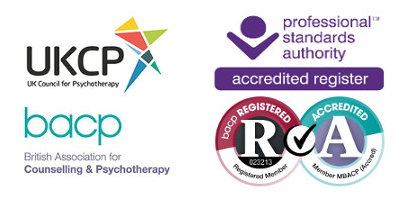I wrote this article in 2005 and published it in ‘Self & Society’, the journal of the Association of Humanistic Psychology Practitioners.
In the past five years I have worked in groups with about 40 fellow boarding school survivors and corresponded, spoken and shared experiences with dozens of others. More recently, I have worked as a psychotherapist with around 20, most of whom have been gay, lesbian or bisexual. It was in September 2004 that I started to run workshops, the subject of this article. These were designed specifically for gay men, like myself, who felt that their boarding school experience was difficult to come to terms with and had had a long-term negative impact.
At that point it was exactly ten years since I had entered therapy. When I started that journey, I was unaware that my anxiety, isolation and sense of failure were linked to my schooling. Since then, I have oscillated between anger about the damage done to me and insistence that I have little genuinely to complain about. Struggling with this duality is common. Boarders can buy into themyth that we were special and fortunate. It is a tenacious introject.
 The major selling point of boarding schools is that they instil ‘character’, self-confidence and self-reliance. I think this claim deserves to be questioned.
The major selling point of boarding schools is that they instil ‘character’, self-confidence and self-reliance. I think this claim deserves to be questioned.
I find it less painful, less shameful, to ‘defend my parents’ and maintain the story that I was happy, than to admit that my daily reality at school was tedium and torment. If I do voice my real feelings, I may do so apologetically.
The major selling point of boarding schools is that they instil ‘character’, self-confidence and self-reliance. I think this claim deserves to be questioned. It may be true that boarders can grow into competitive and domineering adults, and these are qualities well rewarded in our society. However, the cost in many cases is surely too great, in terms of the trauma of early abandonment and institutionalisation, the symptoms of which are clearly seen in adults who are hardened, pressured, and do not permit themselves normal weakness or failure, who are resistant to loving and being loved.
Nurturing parents know that their children are dependent on their protection and love. They set boundaries to contain and support them becoming gradually less dependent, by individuating, making choices and developing their adult form. Crucially, this is an organic process, which needs a pace appropriate to the individual.
 Boarding can be damaging because it takes parents and family out of the picture and substitutes premature independence,
Boarding can be damaging because it takes parents and family out of the picture and substitutes premature independence,combined with dependency on the school, an overweening, ersatz authority.

Boarding can be damaging because it takes parents and family out of the picture and substitutes premature independence, combined with dependency on the school, an overweening, ersatz authority. An institution is not designed to meet a child’s emotional needs, and they may conclude that these are unimportant or a mere nuisance.
It is important that therapists are aware of the scars that ex-boarders may carry, very often hidden. “Now that I realize,” one client said to me, “that my problems of low self esteem, depression, fear of intimacy and difficulty with relationships are classic by-products of the boarding experience, I feel much of my previous therapy was wide of the mark.” The surface the client presents can be polished and urbane. When I meet other ex-boarders, I tend to connect through humour and can appear confident andtough; to show that I survived. I was conditioned from childhood not to ask for emotional support, nor to share unhappiness. To talk about my needs or vulnerability at boarding school would have been unthinkably ‘sissy’ or ‘soft’- especially taboo given my awareness at some level of being gay.
At an early age, we had every significant relationship abruptly, unnecessarily cut off: mothers, fathers, siblings, cousins,
grandparents, friends, pets, home, neighbourhood, community were suddenly lost. (I use the word ‘unnecessarily’ advisedly: of course there are rare exceptions where family life is so dysfunctional that boarding comes as a relief.)
 A vital part of the healing work is making efforts to imagine – or remember if we are ex-boarders – the shock felt on first arrival at school.
A vital part of the healing work is making efforts to imagine – or remember if we are ex-boarders – the shock felt on first arrival at school.
This breach of relationships has implications, for example, when a gay ex-boarder comes out to his family; the healthy connection, which might support a person in this process, has already been radically broken. Not surprisingly, ‘nesting’ and the security of a home can feel extremely important and healing, and many of us have found new communities and ‘families of choice’which have gone some way to filling the gap left by the rupture in our childhood.
A vital part of the healing work is making efforts to imagine – or remember if we are ex-boarders – the shock felt on first arrival at school. That is to make contact with the child before he adapted to his new environment and shut down his authentic, feeling part. “I didn’t complain to my parents,” is the message I hear from ex-boarders when asked to recall their first hours at school, ” because that would have let them down.” This is a very wrong thing for a child to have been taught. To be vulnerable or powerless should not invite contempt, and to need love and reassurance is human and natural.
The child who arrives at boarding school is well aware that his parents, having invested a great deal in the success of this project, expect him to be calm and courageous. Resourcefully, he may come up with a piece of double-bind reasoning which runs something like this: “I am privileged to have been sent away from home, I’m lonely and dying to be touched and comforted but I’m not going to ask for that. My parents have sacrificed themselves and sent me away because they love me, and I know that they love me because they tell me so. Therefore the experience I am having is not real, or not to be trusted, or there is something wrong with me. It is not possible to imagine that my parents have been selfish, cruel or ambitious for themselves. I must be ungrateful, undeserving, rotten to the core.”
 … I’m lonely and dying to be touched and comforted but I’m not going to ask for that.
… I’m lonely and dying to be touched and comforted but I’m not going to ask for that.
At the same time the child puts an immense, instinctive effort into not crying, disciplining and deadening himself, strangling his throat, tightening his chest and restricting his breathing so as to hold backtears and shut off the waves of grief and homesickness. This way of using himself becomes habituated, and is evident both when I work with adult ex-boarders and when I reflect on my somatic self-organization. It becomes what the child, then the adult, recognizes as his identity. It corresponds to what Nick Duffell has termed the ‘strategic survival personality’.
Duffell quotes a client once having said; “I became a strategic person, always on the lookout for danger and how to turn every situation to my best advantage. I still do it. It’s exhausting. I don’t know how to stop doing it.” This fits with my own experience and that which others have reported to me.
 It seems important to act competent, and not to feel one’s own chaotic feelings.
It seems important to act competent, and not to feel one’s own chaotic feelings.
One of the manifestations of the ‘survival personality’ is extreme polarity of control and chaos. “I look to all the world as if I’m fully in control, but inside me is turbulence,” one person told me. “I try to deal with everything on my own, won’t let anyone help me.” It seems important to act competent, and not to feel one’s own chaotic feelings. Several people have told me of “seeking refuge in work”, over-committing or over-extending themselves, being addicted to work or to the abuse of drink, drugs, food or sex. Life feels shortened, because they do not allow themselves to stop and breathe.
I increasingly connect this squeezing of time to the conditioning of school time-tabling. A non-boarding youngster typically luxuriates in free, unregulated time, whenever he or she is at home and particularly at weekends. It can almost be seen as the teenager’s developmental task, to ‘hang out’, as they wait for their adult identity to form. It is hard to convey to someone who has not grown up under a tight, institutional regime, what it is like to have no moment which is not precisely allocated to one demand or another, every space filled lest, heaven forbid, the pupil have some self-contact, and access to feelings such as sadness, anger or lust
Thus boarding school survivors tend to be stoic and ever enduring. They have been ‘trained to put up with a lot’, as a workshop participant expressed it to me. Survivors are inclined to deprecate information in their body about their needs, impulses, appetites and preferences.
 Survivors are inclined to deprecate information in their body about their needs, impulses, appetites and preferences.
Survivors are inclined to deprecate information in their body about their needs, impulses, appetites and preferences. 
They often lack a subtle, sensitive feel for their own boundaries. The structures of traditional boarding school actively discourage the normal, organic exploration and discovery of boundaries. “There are rules for everything”, one client told me, “and you won’t get far if you question them, however eccentric. You cannot go here or there, yet there’s no way you can stop people invading your private space. In fact, there isn’t any privacy. It’s like the army, but for immature, impressionable children.”
Another said, “I can never belong to anything, because for so many yearsI was forced to belong to the school. I wore their uniform, obeyed their rules, jumped out of bed and went running to the chapel or the refectory whenever they rang their bell.” And poignantly this person added, “I would rather live like a hermit than have anyone ever tell me what to do and when to do it”.
 Boarding schools seem to produce compliant conformists and sabotaging rebels…
Boarding schools seem to produce compliant conformists and sabotaging rebels… 
Boarding schools seem to produce compliant conformists and sabotaging rebels: both externally referenced, both reactive to their environment, rather than responsive to themselves. Sometimes these co-exist as sub-personalities within the same individual. I am aware of this dichotomy in myself and watch for it in the therapy room. Up to a certain point, one can expect the client to comply or co-operate, but, sooner or later, the rebel side asserts itself, absolutely refusing to be moulded and happy to ‘cock a snook’. I see this not as ‘resistance’ to be overcome, but as an attempt to make a personal boundary, which I will support in any way that I can, for example by facilitating the client to express, and to have a bodily experience of, their anger. It is part of the process of developing their sense of self that was disturbed by being separated from home.
 Their parents, in some cases disappointed by their failure to align with male gender norms, had sometimes sent them away, in part, to ‘make a man of them’.
Their parents, in some cases disappointed by their failure to align with male gender norms, had sometimes sent them away, in part, to ‘make a man of them’.
Men who were sent away at a variety of ages, from 7 to about 14, have attended my workshops. They were at boarding school from the 1940s through to the early 1990s, before Wolfenden up to the era of Section 28. They include men who did, and who did not, identify as gay while at school, and others who had at least a dim awareness of their gayness. Some are still uncertain of their sexual orientation. Some had sexual relations at school, which was not always consenting. All were at single-sex boarding schools, and all experienced these as profoundly homophobic environments. Their parents, in some cases disappointed by their failure to align with male gender norms, had sometimes sent them away, in part, to ‘make a man of them’. They went to a place where silence around gayness suggested a real sense of dread. Sex was punishable by expulsion – the threat of a second exile – and only took place under pretence of machismo and coldness. My memory, and generally that of the people I have worked with, is of repressive, austere, joylessinstitutions from which everything tactile, sensual or voluptuous was excluded. “Ironically,there was plenty of sex in the Latin poetry that was force-fed to us”, one man pointed out, “but I kept myself safely emasculated and ignorant of what it really meant. ‘Amo’ was just a verb to be conjugated.” Masculinity was policed from the outside andself-policed. “If you were identified as a ‘cock watcher’ or a ‘perv’, at the very least you were derided and threatened.” Some attempted to keep themselves safe by adopting an exaggeratedly firm handshake and doing whatever else they could to pass themselves off as heterosexual.
The author Paul Monette, a gay boarding school survivor, believed for years that sex and love could not co-exist. “As long as I kept them apart, love would be sexless and sex loveless, endlessly repeating the cycle of self-denial and self-abuse.” Several clients have indicated their aversion to intimacy. This can manifest as engaging in furtive or dangerous sexual activities, obsessing about unavailable partners, or withdrawing and isolating all together. Others report anxiety and physical tension preventing satisfying and pleasurable experiences of sex within loving relationships, possibly because sexuality has been split off from the rest of the personality.
“I yearn for a sustained, warm, intimate relationship”, one gay ex-boarder told me. His behaviour, however, shows as contradictoryand ambivalent. In common with other survivors, he avoids anger, conflict, play, spontaneity, weakness, and being open to possible rejection – all constituents of intimacy. “It’s almost like an allergic reaction, whenever I get close to a possible partner, or even think about intimacy”, another client has reported.
 This flavour of an urgent, life-and-death need for survival is the ‘strategic survival personality’ in action.
This flavour of an urgent, life-and-death need for survival is the ‘strategic survival personality’ in action.
If and when they do get into intimate relationships, survivors often relate in a controlled and controlling manner. “It’s the difference between being committed with all my heart and soul, being passionate and honest, and saying what I’m thinking, or, on the other hand, always making calculations and judgments about what I’ll get away with”, one man explained. “I want to ensure that he doesn’t leave me, and also that he doesn’t discover the truth about me, how bad I am – this is an absolute ‘must’, I will do anything to achieve it”. This flavour of an urgent, life-and-death need for survival is the ‘strategic survival personality’ in action. Honesty, empathy and sharing may appear to be present in the relationship, but at some level it is a masquerade. The ex-boarder is playing a secret, clever game – a ‘role’, a ‘pretence’, as some described it to me – censoring true thoughts and feelings, clinging to a partner while passing himself off as secure and confident. After all, he got a lot of practice ‘passing’ at boarding school.
Sometimes ex-boarders need to become aware that what they have engaged in is a pretence of loving. As survivors, they have continued to care mainly about themselves, whereas having a real, gratifying, loving relationship involves action and effort. “I know that I will be really healed when I can make love to, with, for and about my partner”, one movingly said to me.
Relationships require us to manage both closeness and distance, to regulate our contact and ourselves. People I have worked with find this difficult. To anyone who has not been at a traditional boarding school, or had an analogous experience of abandonment, missing an absent friend or lover is a manageable experience. Some survivors, on the other hand, find it intolerable to hold the other at a distance. Separating from the other is like being emptied out. Better to switch off loving feelings, than attempt to cherish and sustain them in absentia. That is the dilemma. “After the experience of being incarcerated at school, literally counting out the days, months and years”, one person said to me, “it’s just too painful to let myself miss my partner”. Missing and longing have to be abolished as experiences, and endings or transitions erased. Thus there is no continuous thread of relationship; each new meeting entails starting afresh. This is something a therapist needs to keep feeding back to his client about, finding ways to support a sense of continuity of self and of relationship until in time the client begins to have feelings about it and makes different choices.
Quite often, survivors move between poles of closeness and aloofness, impulsiveness and caution in ways that others experience as teasing or confusing. I have experienced myself determined not to get close to anyone and, if occasionally I did, being equally determined to cling to the other as if it were a matter of life and death. This poor sense of boundaries and insubstantial sense of self characterise the survivor. We cannot get and stay close to another, and in right relationship with our self, if we do not know where we end and they begin. In order to stay, we need to know that we are whole, and that we are free to leave.
The workshops have been unique gatherings. It is unusual to invite gay ex-boarders to come together on the basis of common history.
 The workshops have been unique gatherings. It is unusual to invite gay ex-boarders to come together on the basis of common history.
The workshops have been unique gatherings. It is unusual to invite gay ex-boarders to come together on the basis of common history. 
The discovery that one is not alone can be transformative. I have been forcibly struck by participants’ truthfulness, their strong appetite for contact and connection, and their evident delight in finding a safe place to share their stories, feelings and reflections on the ways in which boarding has impacted on their adult lives. The feedback has been that they have felt lighter, liberated, relieved of a burden, unblocked, stronger, and more in touch with their own sadness and gentleness, having had an opportunity to get to know others who survived similar childhood experiences. Men who are used to hiding, feeling small or invisible in groups of other men, report having had a powerfully different experience after breaking their silence about their hurt and anger. They were willing to give and receive affection, appreciation and acceptance, which they might ordinarily find intolerable. For me it has been key to reverse the efficient suppression of emotion. Ex-boarders can flirt with feelings then briskly move on. Working with them, it has proved important to make more space for their feelings. In particular, they are entitled to their rage, which needs airing. In this way they can find a place where they feel clear and can celebrate themselves and feel proud rather than ashamed.
I acknowledge that boarding schools are beginning to move with the times. Whether they are any more than ‘children’s care homes’ for the ‘privileged’, even now, I leave for others to judge. For some outgoing 14 or 15 year-olds, the boarding might be a life-enhancing adventure. For younger ones, I can only express some relief and pleasure that there tend to be more frequent and longer visits home, more fluid interaction with parents and friends, mobile phones and email to stay in touch with, and counsellors and other sources of confidential and sensitive support.
I am told that the modern curriculum generally includes discussion about sexuality, feelings and relationships, that the competitive ethos is softening, that there is a kinder, less authoritarian, less bullying atmosphere. In today’s schools, I am informed, to be gay no longer automatically means to be ashamed and invisible.
Thus the worst effects of separation from family are being mitigated, though those whose parents are distant, whethergeographically or emotionally, will continue to struggle, as will those who are first sent away at a young age. The younger the child, the more likely it is that removal from family life, parental care and all the attachments of home will preclude them getting what they need in terms of reassurance, safety and acceptance – in a word, love.
Finally, I would like to acknowledge my debt to the great pioneer in the field of boarding school survival work, Nick Duffell, whose ideas and experience underpin and provide a framework for my thinking, and who has taught me that the deep wound to our souls deserves recognition and honouring. I also give warm thanks to Richard Nickols, who joined me in facilitating the Spring 2005 workshop.
Further Reading
1. Duffell, Nick & Bland, Robert. The Making Of Them: The British Attitude to Children and the Boarding School System. Lone Arrow Press. 2000. (See boardingschoolsurvivors.co.uk and abss.org.uk.)
2. Monette, Paul. Becoming a Man: Half a Life Story. Abacus. 1994.
3. Raphael, Frederic. A Spoilt Boy: A Memoir of a Childhood. Orion. 2003.
4. Fry, Stephen. Moab Is My Washpot. Arrow. 2004.
5. Lambert, Royston. The Hothouse Society. Weidenfeld & Nicolson. 1968.
6. Schaverien, Joy. Boarding School: The Trauma of the ‘Privileged’ Child. Journal of Analytical Psychology, 2004, vol. 49, pp. 683-705.



